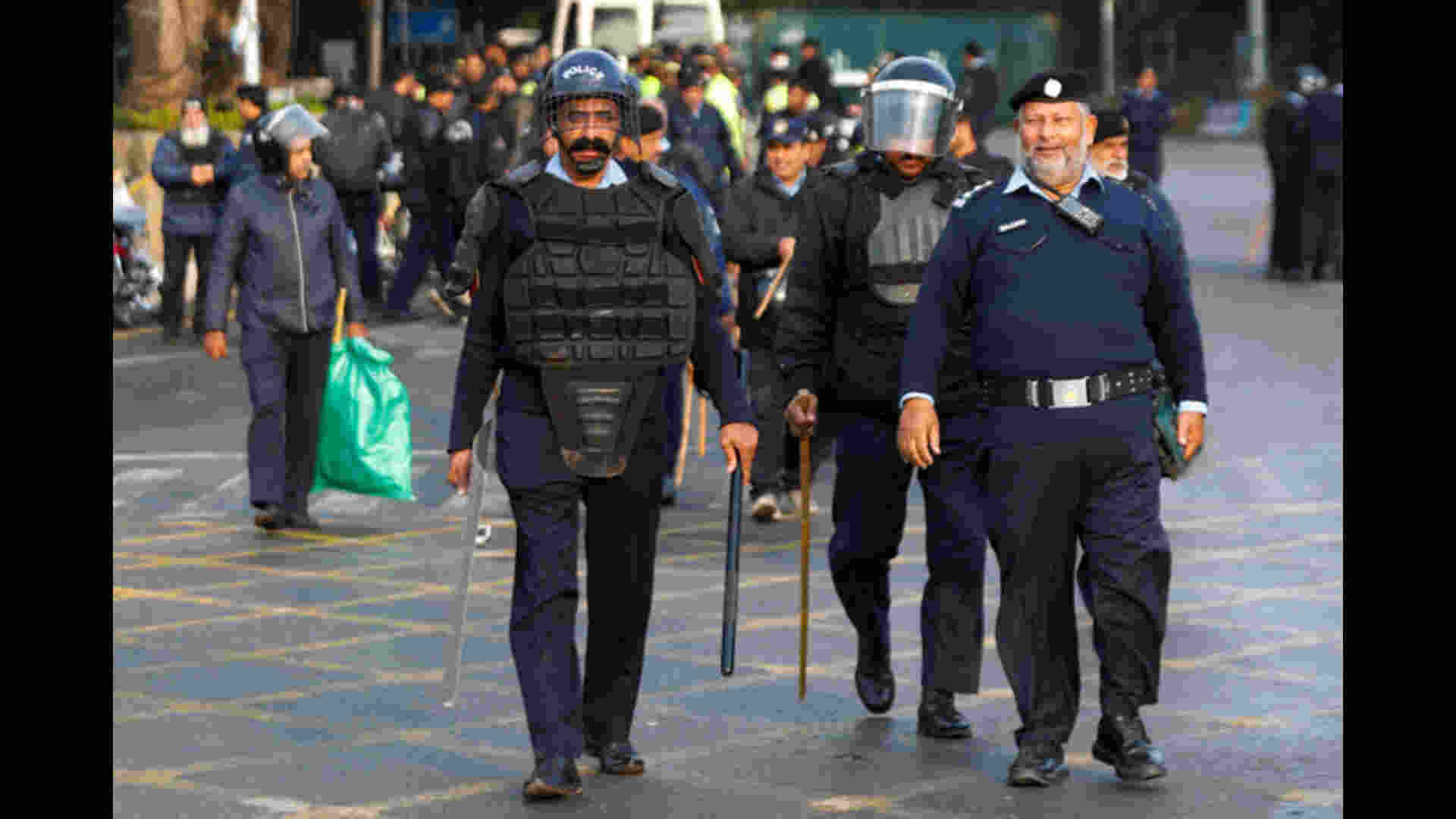
Experts recommend treatment and follow-up care for people with chronic liver disease.
Chronic liver diseases are common worldwide, especially in developing countries. The rapid spread of severe acute respiratory syndrome coronavirus 2 (SARS-CoV-2)/(COVID-19) leads to the infection of many patients with underlying chronic liver diseases. To discuss about the same, we interviewed Dr. Shiv Kumar Sarin, Director of Institute of Liver and Biliary Sciences (ILBS); Dr. Anil Arora, Chairman, Institute Of Liver Gastroenterology & Pancreatico Biliary Sciences Sir Ganga Ram Hospital and Dr. Kaushal Madaan, principal director and head of Hepatology from Max chain of hospitals.
Question: Since there is a lot fear among people as far as Covid is concerned, how should a liver patient, someone who perhaps has fatty liver, liver cirrhosis, how should they go about their regular checkups? Should they visit hospitals? Should they consult you all over? What are they supposed to do?
Dr. Sarin: First of all we should know that liver is located on the right side of the body and weighs a kilogram and a half. It is one of the largest organs in the human body. If you put a lot of stuff on the liver, then it is not a healthy liver. If there is extra fat for too long, the liver will shrink and it may become fibrous, discard and late stages of cirrhosis.
Question: Those who already perhaps have these diseases, they also have a lot of apprehensions as far as their regular checkups are concerned, because that’s also extremely important for them. Should they skip it as of now, should they visit hospitals, or should they stick to video consultation? What would be your advice to those who already have liver diseases, but perhaps don’t have Covid, have an anxiety or fear of Covid in the back of their mind.
Dr. Sarin: Those who have fatty liver certainly are not having the disease. Fatty liver itself is just extra fat. But if somebody has cirrhosis and he knows somebody who has got alcohol liver injury or has cancer, they all require treatment and monitoring. So don’t put it away. Treatment for all liver diseases must be given and should not be delayed. Treatment is essential whether you use a teleconsult or go to the hospital. What you can do at home is, of course, continue your own diet and the prescription that the doctor has given.
Question: We all know that because of the fear of Covid, there is a lot of concoction of medicines which many of us are consuming already. There are alternate medications that many people are taking. There were reports that Giloy could cause some liver damage, then later there were reports no it doesn’t do that.
What would be your stand on this alternative medication when it comes to avoiding Coronavirus or just taking these medications as a precaution?
Dr. Arora: Liver is an organ that does not require any servicing, does not require any maintenance till you intentionally or accidentally try to injure it. You do not need any medication. You do not need a specific diet. You do not need any type of maintenance, but do everything to prevent the damage.
Two major reasons why the liver gets damaged is, if you are having too much of the calories in the diet, so initially it gets deposited in the peripheral tissue that is subcutaneous tissue, and once those stores get exhausted, it tends to get into the vital organs. The liver is a central organ for the metabolism, production and synthesis of various proteins, and integrated metabolism of fat, carbohydrates as well as proteins. It also is known to produce a number of coagulation and anticoagulation factors.
In fact, there have been excellent guidelines from CDC, from our own ICMR and the Government of India and AIIMS, which tell us that we need minimum medication. Even allopathic medicines are needed in minimum doses for a minimum duration of time. They will do more harm than good. Especially all chemicals, all ingestions, all food has to be metabolized through the liver. So anything and everything that you are taking for any purpose you have to take under the guidance of a registered medical practitioner, take it for a minimum period of time, at a minimum dose, for a minimum duration. Never self-medicate yourself.
Question: But I specifically mentioned giloy because there is a lot of debate around it. And also it’s not just giloy, but a lot of as I said ayurvedic, alternative medication which people are taking. Dr. Kaushal, would you also perhaps tell your patients to stay off this concoction of alternative medicine, medicine that claim to be herbal and perhaps give you better immunity against Coronavirus?
Dr. Kaushal: These herbal and alternative medicines, even before this pandemic of Covid started, we have been advising our patients, whether or not they have underlying liver disease, to avoid taking herbal medicines of whose ingredients we are not sure of. When this pandemic came, we realised that there were many patients who were coming into us with unexplained liver failure and liver injury and some of them had even died. Only after a few months, we realised that they were taking a concoction and the most common ingredient of that concoction in these particular patients was Giloy. In fact, you would have recently seen a publication published in an indexed journal that presented about five or six cases similar to what I have been talking about and I think all of us would have seen such cases. See, how we make a diagnosis is by the exclusion of all other possibilities. We could not find any cause and only this thing stood apart, as patients were using kadhas… I don’t know what kind of mixtures they were having, what kind of concoctions… Two times a day, three times a day, for almost a year they were having it and they landed up with liver injuries. So I definitely think that these are the culprits in such cases.
Question: Could it also affect a healthy patient, someone who has a healthy liver and they start to take alternate medication? What would be your advice to them?
Dr. Sarin: Any medicine whether allopathic, homoeopathic or ayurvedic or preparation can be harmful or beneficial. I do not know much about the homeopathic or allopathic medicines. I can certainly say that there are certain herbs that can be harmful. No medicine should be consumed without a scientifically proven safety.
Secondly, a healthy liver is a necessity for better immunity. As far as covid is concerned, the infection initially transits to the lungs and then to the liver where it finally settles. This is called bystander hepatitis. Bystander implies that whatever Corona does, harm to the liver is possible. has severe Covid, he will have something like 70% of them will have liver enzymes being normal. In mild Covid, 10-20% will be having liver enzymes normal. Food can injure the liver, drugs which are taken, preparations that are taken, all can cause injury to the liver.
Question: Talking of drugs, there were reports that azithromycin, remdesivir, those drugs could also affect the liver, but they were widely prescribed by physicians. What would you say to liver patients? Should they stay off these drugs? And those who get serious, perhaps their families are told to administer remdesivir. What are they supposed to do then?
Dr. Sarin: So, remdesiver cannot be given to patients with liver disease. Secondly, it is not proven beneficial. So I would be very hesitant to give. Azithromycin can also give liver injury. In fact, there is no reason to give these drugs if the patient has pre-existing liver diseases. If you have read some very interesting Lancet papers, Corona was more serious in those patients who had a BMI of about 25. In India, nearly 30%, one in three people have a high BMI, they all have fatty liver. So, the disease is more common, more susceptible, injury is more progressive and liver injury enzymes being abnormal or very high. Secondly, if somebody is also mixing alcohol with Corona pills and ppl were staying home, they were drinking.
Question: Dr. Arora, I know a lot of patients, not liver patients but younger ones who are comorbid, have diabetes etc. The day they recovered, the first question they have in mind is that can I have a drink now? What would you say to those who have liver diseases, perhaps got Corona, have recovered and are craving a drink?
Dr. Arora: See drinking as a habit, when it is harmful for you, it is not recommended. If you look at our baseline population, which has non-alcoholic fatty liver disease coupled with so many metabolic abnormalities like diabetes, hypertension, these are all the risk factors that will aggravate the injury related to alcohol. Once in a while, socializing is understandable, but the problem is that alcohol is an addictive agent. If you look at the data from the US, the maximum number of cases that are being reported after cure from hepatitis is related to alcohol.
This is something that is absolutely preventable. Not only on its own it causes problems, but in patients with underlying fatty liver or those with hepatitis B or C, this alcohol is an added synergistic effect to cause further liver damage. So, unless you are sure that there is nothing wrong, you should avoid alcohol.
Question: Does Covid affect them more severely if they have liver cirrhosis? And what about those who have had a liver transplant?
Dr. Kaushal: There is ample data to suggest that patients who have fatty liver disease have a very severe lung disease when they acquire Covid. They have very poor outcomes and more of them end up in the ICU, end up with ventilatory support. Patients who are just at the stage of waiting for a transplant, are the ones who have advanced liver diseases. So, obviously, if they acquire Covid-19, they are at high risk of dying. If they have a new liver, they already are immunosuppressed. Some schools of thought say that since they are already immunossuppressed, they’re not able to mount an immunoinflammatory response to Covid so they may have mild disease. But this is a controversial issue and more and more data is coming in.
Question: Is the severity or risk of Covid a lot more once they catch it? Secondly, is the treatment for them different? Is it special treatment or they take the same medication as the general population who catches the virus? And if someone has liver disease, generally when people catch Covid, they go to general physicians. Should they also consult their liver doctor in the loop about the medications they are taking?
Dr, Sarin: If the transplant was done within the last three months, corona can be very severe, and you should act quickly. People who are on heavy immunosuppressants have rejections even after a year, and if they get a corona infection, there is a problem again. Corona does not make people worse, but they are already predisposed to other illnesses.
Liver is the root cause of diabetes and blood pressure and high triglycerides. If you have fatty liver or is obese, diabetic, is comorbid, he must look at the liver enzymes. Covid gives you all a chance to lose weight. Become healthy, lean and thin, so that unfortunately, if the third wave comes, you are strong, your liver is strong and your body is strong.
Question: What about liver patients? Once they recover, what is the post-Covid care that they need? What are the tests which are required and why would you say they shouldn’t throw caution to the wind? Perhaps why would you say that those who have liver diseases have recovered from Covid should still be cautious and should still measure their parameters?
Dr. Arora: All those who suffer from Covid are likely to come down with something called ‘Long Covid’ There is a multitude of reasons for that. You may have a bit of virus or the immune process which may still be simmering around the body. Or you may have an immune complex disease that may be present or activation of the immune system. Now coming back to the liver, in patients with liver disease, if you have a concomitant Covid, you may have multiple reasons why the liver can get affected. It may occur because of the hyperinflammatory syndrome which comes out from the lungs and gets disseminated in the body, of which the liver gets the major share of the blood.
A number of drugs that are given to treat Covid have indirect toxicity on the liver. If you have had a recent infection, you are likely to come down with more complications. You have to regularly follow up with a liver specialist if you have underlying liver disease.
Question: what would you tell all your patients, should they go, and get vaccinated at the earliest? Perhaps it is these patients who already are susceptible, who already have compromised immunity, who need to get vaccinated at the earliest.
Dr. Kaushal: I totally agree. I feel that there is a lot of vaccine hesitancy, especially in patients who have comorbidities. Since they have an underlying disease, they have anxiety that whether the vaccine will suit them or not or whether it is going to cause harm to them. So we keep getting phone calls and patients want to ask one thing that should we get vaccinated? So answer for all of that is whether they have early liver disease or advanced liver disease, they are best in a vaccinated state. So they should all get vaccinated, whichever stage of liver they are in. Because if they don’t take and if they have advanced liver disease and if they catch the infection then definitely the outcomes are going to be worse. So one-line answer is that any patient who has any kind of liver disease must take a vaccine.
Question: What is the post-Covid care? I would like to ask you also this question because a lot of people seem to be ignoring that.
Dr. Sarin: First, patients with liver disease have weak muscles. We call it sarcopenia. Even if they are obese, they have very limited muscle power. If your liver is weak, your muscles are also weak and after Covid there is extreme fatigue, loss of appetite. You have to work extra, be more careful about this, and get your antibodies done if you need them.
The second important thing for a patient with cirrhosis after Covid is gone is to remember that the liver can digest more fats than it can digest pure carbohydrates. So just avoid carbs. Your main diet should remain protein-based, good whey protein or something and then next, the energy source can be fat. But yes exercises are very essential. It’s very difficult for patients who have got cirrhosis and Covid.
Question: A question that comes to the mind of liver patients is that they already have compromised immunity, they may not have enough antibodies. So, is the vaccine even good enough for me? What if I don’t end up making antibodies?
Dr. Arora: If you look at the various registration trial which was conducted in both US and UK, the initial registration trial excluded patients who had chronic liver diseases or those with an immunocompromised state. In fact, there is data published on Pfizer’s registration trial which has shown that in patients who have advanced liver disease and those who had undergone liver transplantation, the chance of development of antibodies is only 20%. So not all those with the immunocompromised state will develop antibodies. All patients who have an immunocompromised state will not produce antibodies. But in case you have developed antibodies and you can be more confident that you won’t have the viral infection, do not be under the wrong impression that you have been protected. If you do not have antibodies even after vaccination, you have to be extra careful. You have to use double the precaution which a normal person uses. You just cannot move out to public places. You must be extra cautious.
Question: As we conclude what will be your one message to all the liver patients, all those who are suffering from liver diseases, one as far as prevention is concerned and two, in case they get Covid?
Dr. Kaushal: So I think in terms of prevention, I think everyone knows in the last one and a half years what they have to do in order to prevent getting Covid, that is masking, social distancing and washing hands. So that is one message which is true even for patients who have underlying liver disease. Second, they should not fear. Patients who have the early liver disease may not fear. They will have outcomes that are similar to the normal population. Only, those patients who have advanced liver disease, advanced fatty liver, obese, diabetic and post-transplant patients are the ones who need to fear and therefore need to take more precautions and they should get vaccinated as early as possible. And they should avoid like we said the herbal and these kinds of concoctions which contain unscientific mixtures of medicines that might harm the liver. So these are my messages.
Question: What would you say to assuage the fear of perhaps those who already have liver diseases and generally have a fear of Covid? We were speaking earlier of transplant as well, should perhaps people keep such procedures at bay or go ahead with them?
Dr. Sarin: Well the first message for those who do not have liver diseases is to reboot yourself. Lose weight, be careful. Only a healthy body will sustain the onslaught of any Covid infection. So be ready and be healthy. For those who have liver disease, be extra cautious. Transplants are going on and in fact, nearly a hundred have been done during the Covid era at ILBS and I’m sure at many many other centres. So please if you need a transplant, you should go, get yourself transplanted. But yes those who are not… one in a hundred gets a transplant, all other patients, 99 out 100 please be careful. Be in touch with your doctors and specialists. Do not miss your drugs and get your regular screening done. Must get vaccinated for Covid and do not let your guards down. Have Covid appropriate behaviour. You will live normally and you will pass through this Covid. Don’t be worried. But be careful, don’t make a mistake.
Question: as far as Covid is concerned, we were speaking of course in extensive detail about managing your liver diseases, preventing Covid. Final question for those who have liver diseases, should they continue the medication which they were taking earlier or should they halt at a time when they have Covid and perhaps are taking Covid medication coz there is a lot of confusion amongst the laymen on the same?
Dr. Arora: Ya. I think almost all medication that is necessary for the management of liver diseases can be continued under the supervision of a trained doctor. That goes without saying. We have very few active Covid cases now and I am sure that doctors are good enough to know what sort of combination is safe for them. Coming on to the message that I have to give. Starting with what Dr. Sarin said about the liver on the right side, I think you should always listen to your heart. The heart is always on the left side but it is always right. So if you have learnt any lesson during this devilish perfidious second wave which has killed millions of people. If you have learnt something then have some civility, behave properly, get vaccinated and do not just move out of the house. You should remember till everybody is safe, you cannot be safe. The whole world has to get vaccinated before you can lower your guard. So listen to your heart if you have understood something from this devilish virus.
One clear message coming from all the doctors collectively here is that prevention is better than cure. Stay home. It gains all the more significance considering we have those viral pictures of people holidaying in Manali. Don’t do that. We have these doctors who are working a lot for us. Let’s keep ourselves safe.















